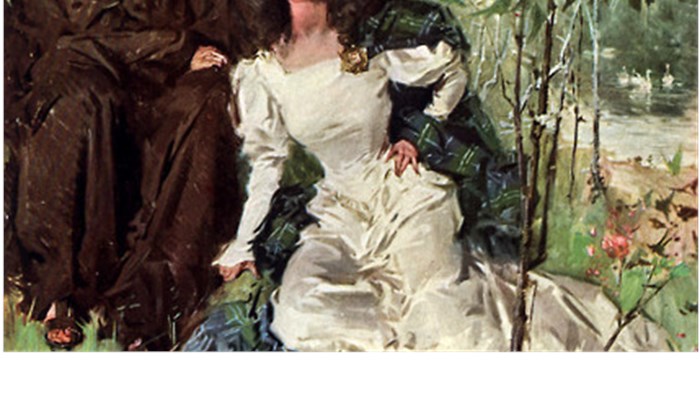the history of the Ave Maria of Schubert

The story begins here, in 1810 Sir Walter Scott wrote a long narrative poem entitled '' The Lady of the Lake '' (The Lady of the Lake), inspired by the Scottish sagas.
In the story, the heroine Ellen Douglas, who to escape the dangers hiding in a cave, please sing '' Hymn to the Virgin '', a hymn to the Virgin (song 3, stanza 29 of the poem).
Philip Adam Storck translated the poem into German and published it in Essen in 1819. This translation became the book of the cycle of seven of the composer Franz Schubert lieder '' Liederzyklus vom Fräulein vom See '' (Cycle of songs from Lady of the Lake) compound in 1825; the Hymn to the Virgin became "Ellens Gesang dritter" ( "Ellen's Third Song").
The following year the cycle was republished under the title '' Sieben Gesänge aus Walter Scotts Fräulein vom See '' (Seven lieder by Donna del Lago Walter Scotts) op. 52, with both texts is that in German Storck is the English original of Scotts: The operation yielded a great reward for the musician.
The sweet melody of the third lieder, supported by a perfect arpeggio on the piano, he was obviously designed for female voice, but it quickly became very famous and very popular in the interpretation of the baritone Johann Michael Vogl, a close friend of Schubert.
Following the song began to run with the words of the Latin prayer Ave Maria; however, the adaptation of a too short text also forces numerous repetitions of the phrases.
Today is one of the classic '' best known '' and music is sung (with text in Latin or in the various modern languages) and played by artists of all backgrounds and trends, sometimes located dissenting opinions concerning his position within the liturgies , where it is not always tolerated, given its origin '' secular '.
So read about this article
.
- Franz Schubert (1797 - 1828) composed a large number of sacred works, not very well known, the production of which covered all the arch of his short life
Religion was a constant presence in Schubert's life: the musician confronted long with theological themes and The report - although contentious - with faith constituted a major theme of his creative life, so much so that he wrote in a 1824 diary: '' It is through faith that man first enters the world. It is much long before the reason and knowledge, because to understand something we must first believe in something ... The reason is not nothing but faith analyzed ''.
